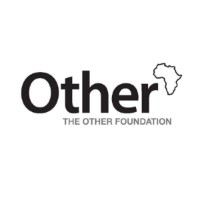Transgender author Landa Mabenge featured as this week's #EFFManCrushMonday. (Image via Facebook)
As it has been doing every Monday in the run-up to the upcoming general elections, the Economic Freedom Fighters this week introduced its Facebook followers to another #EFFManCrushMonday, the latest being transgender author Landa Mabenge.
The post, featuring a beaming, shades-and-suit-garbed Mabenge, reads: “Mr Mabenge is … author of a brutally honest memoir, Becoming Him, where he lays bare his tortured world, growing up trapped in the wrong body, while unflinchingly tracing his transition from female to male.”
The comments come in thick and fast, including from those who, pleased with this celebration of queerness, appear to have decided where their vote will go. “Only this will make me move closer to the EFF!” said one commentator.
For Mabenge, not a card-carrying member of the party “yet”, this is a sincere indication of the EFF’s position on queer inclusivity.
“The history of LGBTIQ [lesbian, gay, bisexual, transgender, intersex and queer/questioning] rights is clear in South Africa. However, I am yet to see a more clear, direct and focused intention on [securing] LGBTIQ rights as detailed in the current EFF manifesto,” he says.
The EFF’s manifesto is impressive in its detailed list of queer-specific issues it promises to tackle.
Among several promises indicating the party’s understanding of difficulties faced by queer people is a pledge to amend the Criminal Law Amendment Act (“and existing legislation to include harsher minimum sentences for ‘corrective’ rape specifically, or crimes committed with hatred as motivation in general”).
Kimberley resident Tebogo Makwati, a member of the ANC-affiliated queer rights alliance Embrace Diversity, believes queer voters will head to the polls with queer-inclusive manifestos foremost on their minds.
It is the ANC, with its “proud history of championing the cause for gender equality, the rights of people with disability and the LGBTIQ community”, which was instrumental in securing the rights of queer South Africans.
But a look at the party’s manifesto, which it proudly states is about “advancing nation-building and social cohesion, stepping up the fight against racism, sexism, homophobia and other intolerances”, suggests it is lagging somewhat behind the chair-chucking Fighters.
The governing party’s manifesto states it aims to “finalise the proposed legislation before Parliament aimed at preventing and combating hate crimes and prosecution of persons who commit those offences”.
“Look,” says Makwati of his reasons for supporting the ruling party, “from the time the ANC has been in power, it has always opened doors for LGBTIQ activism.”
Wayne Helfrich disagrees. Speaking from the blue corner, as spokesperson for the Democratic Alliance Rainbow Network, he says: “The DA is as important to the queer voter as the queer vote is to the DA.”
The party’s manifesto says it will push to combat discrimination against the queer community “and promote the community’s rights” by “creating safe and non-discriminative environments and ensuring government makes opportunities for dialogues on identities and sexuality; providing LGBTIQ sensitisation training in government services, schools and communities; and enforcing a more strident stance on corrective rape and LGBTIQ-related hate crimes by viewing these as aggravating circumstances when considering sentencing”.
Promoting the human rights of queer people around the world, implementing specific education programmes to tackle bullying and harassment in schools because “LGBTIQ youth are not adequately protected by anti-bullying initiatives”, ending the discriminatory treatment of families in adoptions and protecting elders against discrimination are also listed in its manifesto.
For Makwati, though, more than simply heading to the polls — whether out of a long-held allegiance or for something as frivolous as #EFFManCrushMonday — the push for securing queer rights lies largely with queer folk themselves.
“Whether LGBTIQ people vote for the DA or the Kiss [Keep It Straight and Simple] Party or whoever, we need to see LGBTIQ people involved in political spaces. We need to come out from the periphery and start raising our voices. And not always wait for people to speak on our behalf.”
Carl Collison is the Other Foundation’s Rainbow Fellow at the M&G
